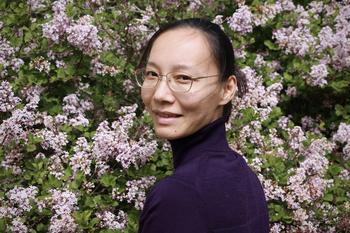Dr. Yiran Wang

Longterm fellow in the project "Epochal Lifeworlds: Narratives of Crisis and Change“
Short Biography
Yiran Wang obtained a PhD degree in anthropology from the University of Amsterdam in 2019. Her research has been focusing on intimate and family relationships, and the “becoming” of subjectivities, of queer women in contemporary China. Her academic writing has been inspired by transnational gender and sexuality studies, queer theory, feminist new materialism, and affect theory. Wang published peer-reviewed journal articles on how transnationally and intra-regionally travelling discourses about female non-heteronormative gender expressions and family power dynamics have influenced lesbian subculture and activism in contemporary China. She contributed a book chapter to an edited volume titled Affective Intimacies, in which she adopted insights from affect theory to interpret empirical data about female same-sex love and sex in 21st-Century Chinese context. She also developed a methodology case study for the SAGE Research Methods platform, introducing how affective experiences can be studied in ethnographic inquiries into gender and sexuality issues.
Project
Affective Experiences and Creative Practices of Queer Women from Sinophone Societies: Moving Towards Europe and BeyondThis project aims to analyse the affective experiences and creative practices of queer women moving from Sinophone societies to Europe, and beyond, in contemporary and historical contexts. With a transnational perspective and an interciplinary methodology traversing cultural anthropology, literary studies and cultural studies, the project consists of three work packages. The first work package empirically investigates how the queer women moving from Sinophone societies to Europe express and give meanings to their embodied experiences, emotional journeys and affective relations through creative practices. The second looks into the literary works of two Taiwanese female authors who auto/biographically depicted queer women’s transnational mobilities towards Europe and beyond, and maps the affective assemblages and temporal spatial entanglements created by these life writings. The third revisits the emotionally bonded lives and mutually-inspired literary and artistic practices of a group of feminist forerunners active in early- and mid-20th-Century China (some of whom travelled to Japan, Europe and/or North America), and queers the well-established nationalist, feminist and popular discourses that adopt the images and works of these women in contesting but equally heteronormative tones.
Funded by DFG-Walter Bejamin Fellowship.
